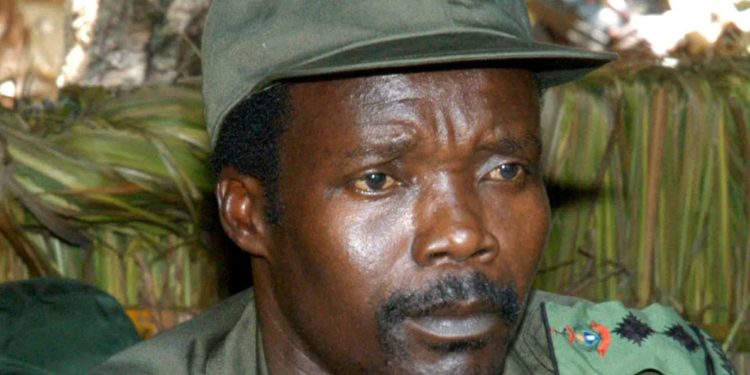The International Criminal Court has been asked to make history by allowing confirmation of charges hearing against an accused person without his physical presence in court.
Prosecutor Karim Khan made the request, seeking the court’s authorisation to hold a hearing on the confirmation of charges against Joseph Kony, the fugitive head of the Lord’s Resistance Army (LRA), in his absence.
The ICC has never conducted a trial without the accused’s presence in court. Article 63 of the Rome Statute apparently rejects this possibility as it states, “The accused shall be present during the trial.” However, Article 61(2)(b) of the statute allows the chamber to hold a hearing in the absence of a suspect who has fled or cannot be found, provided that there is “cause” pursuant to rules 123(2) and 125(1) of the Rules of Procedure and Evidence.
“This is the first time that my Office has made such a request since the establishment of the ICC,” Khan admitted.
Kony remains at large since an arrest warrant was issued against him in 2005 on allegations of 33 counts of war crimes and crimes against humanity in northern Uganda.
Khan said that Kony is the court’s longest-standing suspect at large adding, that his arrest warrant remains unexecuted. For more than 17 years Kony has evaded judicial proceedings at the ICC and efforts by the court assisted by states, international organisations, and civil society actors to apprehend him have failed.
The Ugandan government, in particular the Uganda People’s Defence Force, has for years made efforts to apprehend Kony and collaborated with other regional forces to track his whereabouts. In 2012, the African Union launched an international task force, a 5,000-strong brigade, to look for Kony. The United States of America also deployed forces to locate him.
The rebel leader is listed in the War Crimes Rewards Programme, where a reward of up to $5,000,000 is offered by the US State Department for information leading to his arrest. Such rewards are offered to individuals who provide information leading to the arrest, transfer, or conviction of designated persons accused of crimes against humanity, genocide, or war crimes by an international criminal tribunal, including hybrid or mixed tribunals.
Civil society organisations also set up public campaigns to encourage the apprehension of the LRA boss. One widely known drive was led by the Invisible Children organisation. It was based on a short documentary film titled Kony 2012, whose purpose was to make Kony globally known to encourage his arrest.
Another similar documentary released in 2009 titled The Reckoning highlighted efforts to arrest the rebel leader.
“I have determined it is both necessary and appropriate to seek to advance proceedings against him to the fullest extent compatible with the Rome Statute. After a careful review of the circumstances, I have accordingly requested the pre-trial chamber to hold a hearing to confirm the charges against Mr Kony in his absence pursuant to Article 61(2)(b) of the Rome Statute and rules 123 and 125 of the Rules of Procedure and Evidence,” Khan said in his November 24, 2022 application.
The Prosecutor explained that he hoped the trial would represent a meaningful milestone for victims of Kony’s crimes who have waited patiently for justice for almost two decades. In addition, he further said, it is an opportunity for victims in this case to present their views and concerns through their legal representatives.
The LRA started operating in 1987 in northern Uganda among the ethnic Acholi communities, which had suffered serious abuses at the hands of successive Ugandan regimes during the country’s turbulent history of the 1970s and 1980s. In its heyday, the group abducted and killed thousands of civilians in northern Uganda and mutilated many others by cutting off their lips, ears, noses, hands, and feet.
The United Nations estimates that more than 100,000 Ugandans were killed in the conflict, 60,000-100,000 children and adults were abducted as combatants to the conflict, and more than 2.5 million people were displaced from their homes in the central African region between 1987 and 2012.
In 2004, after many unsuccessful attempts to dislodge LRA both from Acholiland and the neighbouring states of the Democratic Republic of the Congo, Sudan, and the Central African Republic, the Ugandan government referred the situation in the northern region, on its territory, to the ICC to investigate crimes under the Rome Statute. The ICC issued arrest warrants against Kony and four other senior leaders in 2005 for war crimes and crimes against humanity.
Former child soldier and former LRA brigadier Dominic Ongwen was convicted of 61 counts of crimes against humanity and war crimes in February 2021. In May of that year, Ongwen was sentenced to 25 years imprisonment. He has appealed the conviction and sentence, and the decision is currently pending before the Appeals Chamber at the ICC.
The case entered the reparations phase in May 2021, with solicitation of reparation observations.







